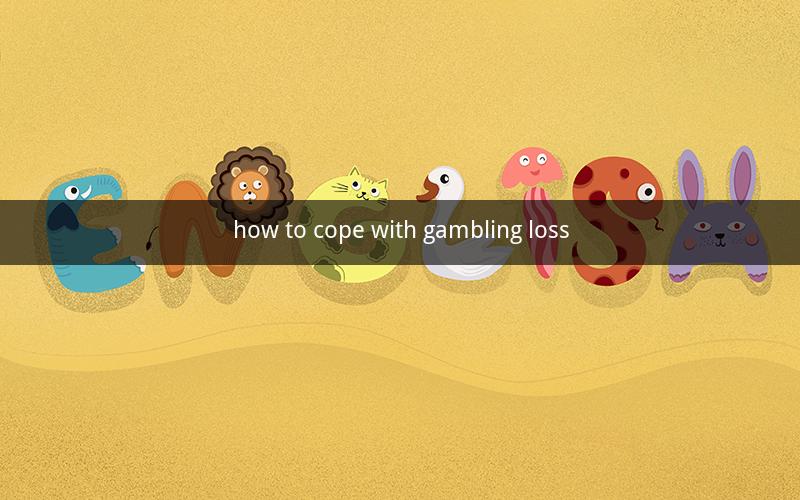
Table of Contents
1. Understanding the Impact of Gambling Loss
2. Identifying the Signs of Problem Gambling
3. The Importance of Seeking Support
4. Developing Coping Strategies
5. Building a Support System
6. Financial Management and Budgeting
7. Therapeutic Techniques
8. Self-Care and Mental Health
9. Learning from the Experience
10. Preventing Future Gambling Losses
1. Understanding the Impact of Gambling Loss
Gambling loss can have severe consequences on an individual's life, affecting their financial stability, relationships, and overall well-being. Recognizing the impact of gambling loss is crucial in order to effectively cope with it.
2. Identifying the Signs of Problem Gambling
Problem gambling is characterized by persistent and uncontrollable gambling behavior that leads to negative consequences. Some common signs include losing more money than intended, chasing losses, and neglecting personal responsibilities.
3. The Importance of Seeking Support
Seeking support from friends, family, or professionals is essential in coping with gambling loss. Support can provide emotional guidance, practical advice, and a sense of community.
4. Developing Coping Strategies
Developing coping strategies is essential in managing the emotional and psychological effects of gambling loss. Some effective strategies include mindfulness, relaxation techniques, and positive affirmations.
5. Building a Support System
Building a support system involves surrounding oneself with individuals who are understanding and supportive. This can include joining support groups, attending therapy sessions, or connecting with others who have experienced similar challenges.
6. Financial Management and Budgeting
Learning to manage finances and create a budget is crucial in preventing future gambling losses. Setting realistic financial goals, tracking expenses, and avoiding high-risk spending behaviors are key components of effective financial management.
7. Therapeutic Techniques
Therapeutic techniques, such as cognitive-behavioral therapy (CBT) and dialectical behavior therapy (DBT), can help individuals address the underlying causes of problem gambling and develop healthier coping mechanisms.
8. Self-Care and Mental Health
Prioritizing self-care and mental health is essential in coping with gambling loss. Engaging in activities that promote well-being, such as exercise, meditation, and hobbies, can help improve mood and reduce stress.
9. Learning from the Experience
Reflecting on the experience of gambling loss can provide valuable lessons and insights. Understanding the triggers and patterns that led to the problem can help prevent future gambling losses and foster personal growth.
10. Preventing Future Gambling Losses
Preventing future gambling losses involves identifying and avoiding triggers, setting strict limits on gambling activities, and seeking ongoing support. Staying vigilant and maintaining a healthy relationship with gambling is essential in preventing relapse.
Questions and Answers:
1. How can I recognize the signs of problem gambling?
Answer: Look for persistent and uncontrollable gambling behavior, neglecting personal responsibilities, and experiencing negative consequences due to gambling.
2. Why is it important to seek support when dealing with gambling loss?
Answer: Seeking support can provide emotional guidance, practical advice, and a sense of community, making it easier to cope with the challenges of gambling loss.
3. What are some effective coping strategies for gambling loss?
Answer: Effective coping strategies include mindfulness, relaxation techniques, and positive affirmations. These methods can help manage the emotional and psychological effects of gambling loss.
4. How can I build a support system for coping with gambling loss?
Answer: Surround yourself with understanding and supportive individuals, such as friends, family, or professionals. Joining support groups and attending therapy sessions can also provide a community of support.
5. What are some financial management tips to prevent future gambling losses?
Answer: Set realistic financial goals, track expenses, and avoid high-risk spending behaviors. Create a budget and prioritize essential expenses to maintain financial stability.
6. Can therapeutic techniques help with gambling loss?
Answer: Yes, therapeutic techniques such as cognitive-behavioral therapy (CBT) and dialectical behavior therapy (DBT) can help individuals address the underlying causes of problem gambling and develop healthier coping mechanisms.
7. How can self-care and mental health contribute to coping with gambling loss?
Answer: Prioritizing self-care and mental health through activities like exercise, meditation, and hobbies can improve mood, reduce stress, and support overall well-being.
8. What are some lessons I can learn from my gambling loss experience?
Answer: Reflect on the triggers and patterns that led to the problem. Understanding these factors can help prevent future gambling losses and foster personal growth.
9. How can I prevent future gambling losses?
Answer: Identify and avoid triggers, set strict limits on gambling activities, and seek ongoing support. Staying vigilant and maintaining a healthy relationship with gambling is essential in preventing relapse.
10. Can I ever fully recover from gambling loss?
Answer: Yes, with proper coping strategies, support, and dedication, individuals can recover from gambling loss and lead a fulfilling life. It's important to remain vigilant and continue working on personal growth to maintain long-term recovery.